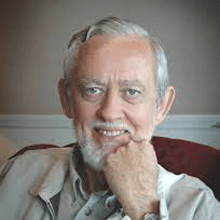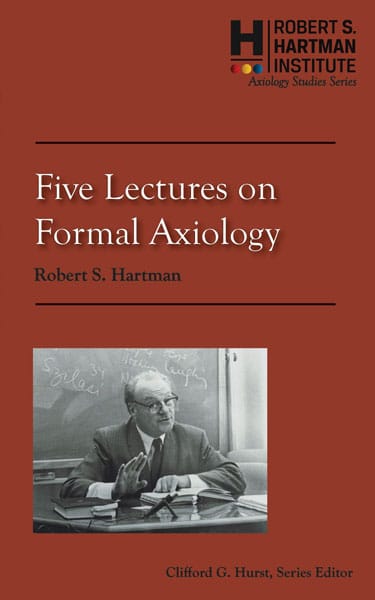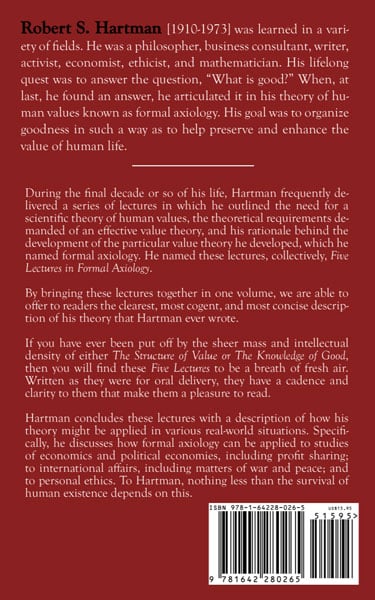ROBERT S. HARTMAN
Five Lectures on Formal Axiology
Book Summary
About the Author

ROBERT S. HARTMAN
[1910-1973] was learned in a variety of fields. He was a philosopher, business consultant, writer, activist, economist, ethicist, and mathematician. His lifelong quest was to answer the question, “What is good?” When, at last, he found an answer, he articulated it in his theory of human values known as formal axiology. His goal was to organize goodness in such a way as to help preserve and enhance the value of human life.Book Reviews

Rem B. Edwards
PhD. Lindsay Young Professor of Philosophy, Emeritus, University of Tennessee

C. Stephen Byrum,
PhD, Professor of Philosophy and Religion, Dean of Humanities, retired: Chattanooga State College
Almost fifty years beyond his death, the legacy of Robert Hartman
and his axiology is uncertain. In an age of rampant social media
and international policy being conducted by unreflective tweets, almost
any “philosopher” seems archaic. The excellent work of scholarship and
insight exhibited by Hartman’s lectures on axiology is vital. It allows an
important piece of Hartman’s work to find new light and—with any
good fortune—claim yet a further breath of sustainability and relevance.

Malcolm North
PhD, Assistant Professor, University of Central Arkansas
This is Hartman’s clearest and most definitive work in one volume.
It should be mandatory reading for anyone who cares about
the value crises plaguing our leaders, organizations, and governments.
Hartman’s value theory is as pivotal and relevant for a world fractured by competing value orientations as his own Zeitgeist.

Vera Mefford
President, AXCES-Solutions, LLC
Hartman has managed to succinctly detail his life’s mission and
vision in this work with brilliant clarity. Understanding the five fallacies in his third lecture would be invaluable for any practitioner or student of the sciences, humanities, or arts.

K.T. Connor
PhD, Managing Director, Center for Applied Axiometrics, Senior Adjunct Professor, Ethics in Public Policy and Administration, Graduate School of Business, Cal Lutheran University
These lectures resonate with those who appreciate goodness, and also with those who appreciate the value of philosophy and wish it could become more “down to earth.” Hartman clearly and understandably shows how early thinkers struggled to capture the meaning of good, and how he saw science’s power actually making it real and earth changing. The world of today needs this as a source of deep deliberation.




Hartman’s writings are difficult to read. His Five Lectures on
Formal Axiology are perhaps his easiest to understand explanation of the basics of his value theory.